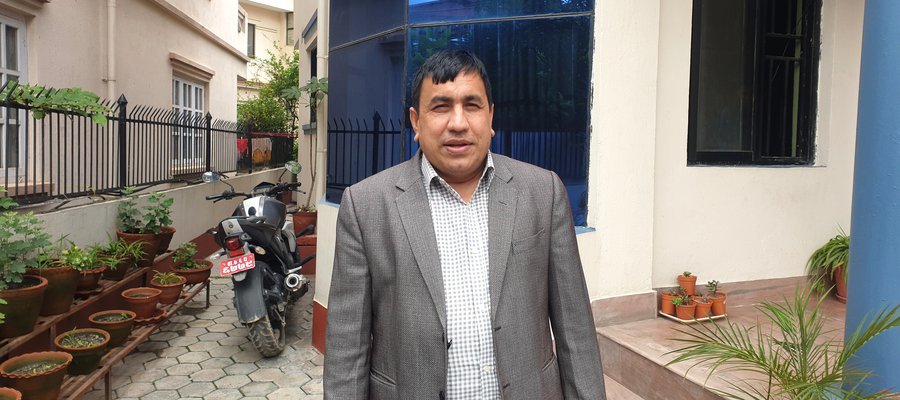I stood in the twilight of the evening, tears coursing down my face

Amar had recently finished his college course. His studies had gone well and because of this, many of the teachers recommended that he should pursue a career in teaching. This appealed to Amar and so with some fear and trepidation, he walked into a school in the southeast of Kathmandu and got a job as a teacher.
Amar found himself a simple room to live in near the school and bought himself a bicycle to help him get around. He began to settle into his work, taking his responsibilities very seriously.
A while later, Amar’s father was visiting him in Kathmandu. They were sipping tea in a local café when his father told him he had news: Amar was to be married. At first Amar wasn’t sure, but his father insisted and so Amar bowed to tradition and agreed to an arranged marriage with Baijanthi.
“The day was set. Baijanthi and I met for the first time just three days before our wedding. She was pretty, shy, and, like me, fearful about what we were about to do. We married on 3 February 1996. I was only 18 years old.
“The wedding was all it should be in Nepali culture. Loud. Colourful. And long. Unlike western weddings, our ceremony will usually take two days or more.
“Baijanthi seemed like a nice girl. We were blessed by the priests, praised by the guests, and sent on our way.
“After a short honeymoon, we were back in my apartment in Kathmandu and I returned to my lecturing as a married man. Baijanthi was able to secure a local cleaning job and our relationship began to grow as we got used to each other’s ways. I appreciated the way she cared for me. I enjoyed the freshness of the relationship. I was hopeful of many years together.
“That ended with the discovery.
“I had agreed with my dad that it was best not to talk about my leprosy diagnosis. After all, the medication had cured me and the only remaining sign of the disease was a numbness on the sole of my left foot.
“I deliberately hid my hospital papers in one of my clothes drawers. I still needed them for the continuing check-ups at Anandaban Hospital. And that was where she found them as she put away some of my t-shirts.
“By the time I arrived home, Baijanthi was in tears. She demanded to know why I didn’t tell her. I confessed to everything. I told her my story, I told her it was in the past, I told her I was cured.
“Her response, ‘But it’s leprosy! Leprosy! Maharog! [the dreaded disease]’
“It had been a long time since I had heard the curse word, but it still shocked me. Despite a successful start to our married life, the discovery of the hospital documents changed everything.
“Within a month she was gone. She had spoken with her parents and their advice was unequivocal: leave him.
“One night I came home from college and she wasn’t there. The clothes were gone from the drawers, the ornaments were gone from the shelf, and the suitcase was gone from under the bed.
“I stood in silence, not even having switched the light on. For a long while I stood in the twilight of the evening, tears coursing down my face. I still carried the shame. I still carried the curse. The curse of maharog.”
--
This is the story of Amar Timalsina, a former Trustee of The Leprosy Mission. He is one of many people who have fallen victim to the laws that discriminate against persons affected by leprosy.
According to Nepal’s Civil Code, 2074: Part 3, ‘none shall be allowed to get married to a man or woman having leprosy’. It was this piece of legislation that made it so easy for Baijanthi to walk away from Amar because he had once had leprosy.
Amar is now working with many others to have this law repealed and is hopeful they will be successful. Amar is also now married to Mimi, with whom he has two children.
Amar’s story has had a happy ending, but there are more than 100 laws across the world that explicitly discriminate against persons affected by leprosy. How many more lives must face ruin before we have these laws repealed?
If you would like to play your part in repealing all laws that discriminate against persons affected by leprosy, you can sign our petition today.
This story has been adapted for our website from Amar’s autobiography, ‘Returning the lost smiles’. You can buy a copy of Amar’s book here.